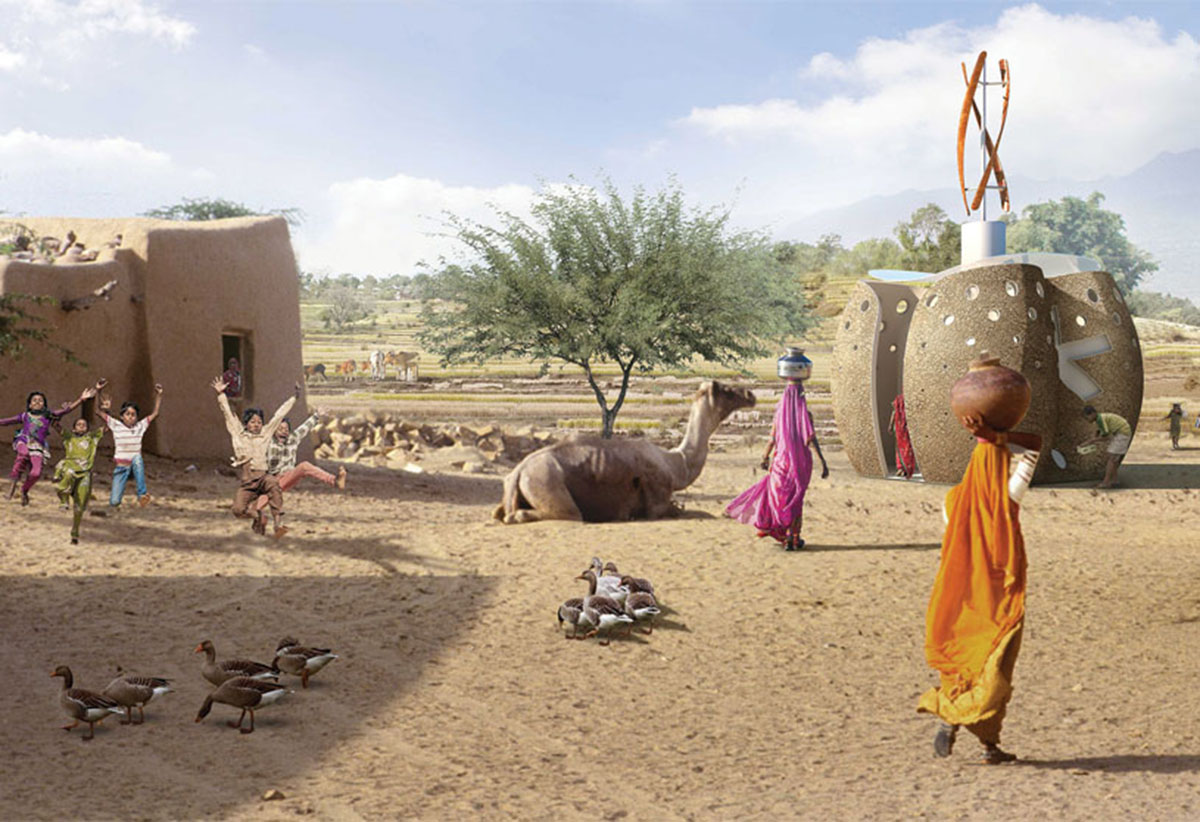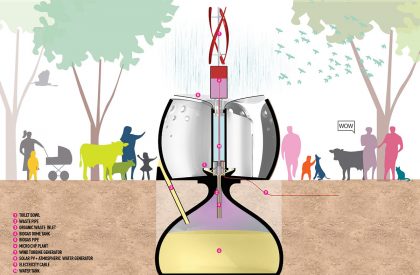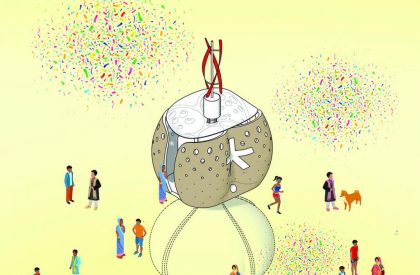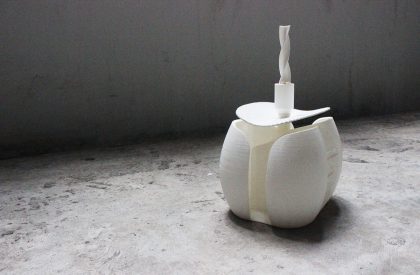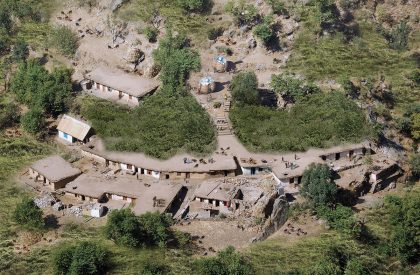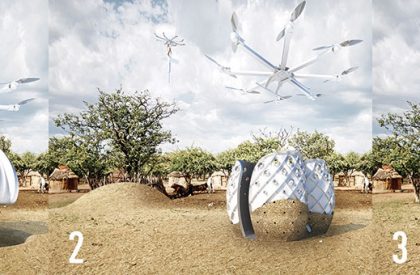Excerpt: Big Arse Toilet is a public washroom designed by the architectural firm SPARK in support of World Toilet Day. SPARK has developed an easily transportable 3d printed toilet module in support of the UN initiative to combat open defecation and the associated issues of hygiene and sanitation in India. Open defecation is a major contributing cause of disease in underdeveloped countries. SPARK’s bold concept converts human waste into biogas. It converts the biogas into electricity via a micro-CHP unit (combined heat and power). The proposal aims to highlight the urgency of eliminating open defecation and the positive benefit of using a natural waste product to create “free” energy for remote communities.
Project Description
[Text as submitted by Architect] SPARK launches The Big Arse Toilet in support of World Toilet Day on 19th November 2018. SPARK has developed an easily transportable 3d printed toilet module in support of the UN initiative to combat open defecation and the associated issues of hygiene and sanitation in India. Open defecation is a major contributing cause of disease in underdeveloped countries. SPARK’s bold concept converts human waste into biogas. It converts the biogas into electricity via a micro-CHP unit (combined heat and power). The proposal aims to highlight the urgency of eliminating open defecation and the positive benefit of using a natural waste product to create “free” energy for remote communities.

In 2013, the UN Deputy Secretary-General issued a call to action on sanitation that included the elimination of open defecation by 2025. Some 842 000 people in low- and middle-income countries die yearly due to inadequate water, sanitation, and hygiene. Poor sanitation is believed to be the leading cause of 280,000 deaths. 892 million people worldwide practice open defecation, perpetuating the vicious cycle of disease and poverty.
The countries where open defecation is most widespread have the highest number of deaths of children aged under 5 years as well as the highest levels of malnutrition and poverty. “Society needs toilets, but billions of people don’t have one. On a massive scale, this means human feces are not being captured or treated, contaminating the water and soil that sustain human life. We are turning our environment into an open sewer. We must build toilets and sanitation systems that work in harmony with ecosystems. World Toilet Day is about nature-based solutions to our sanitation needs. When nature calls, we have to listen and act.”
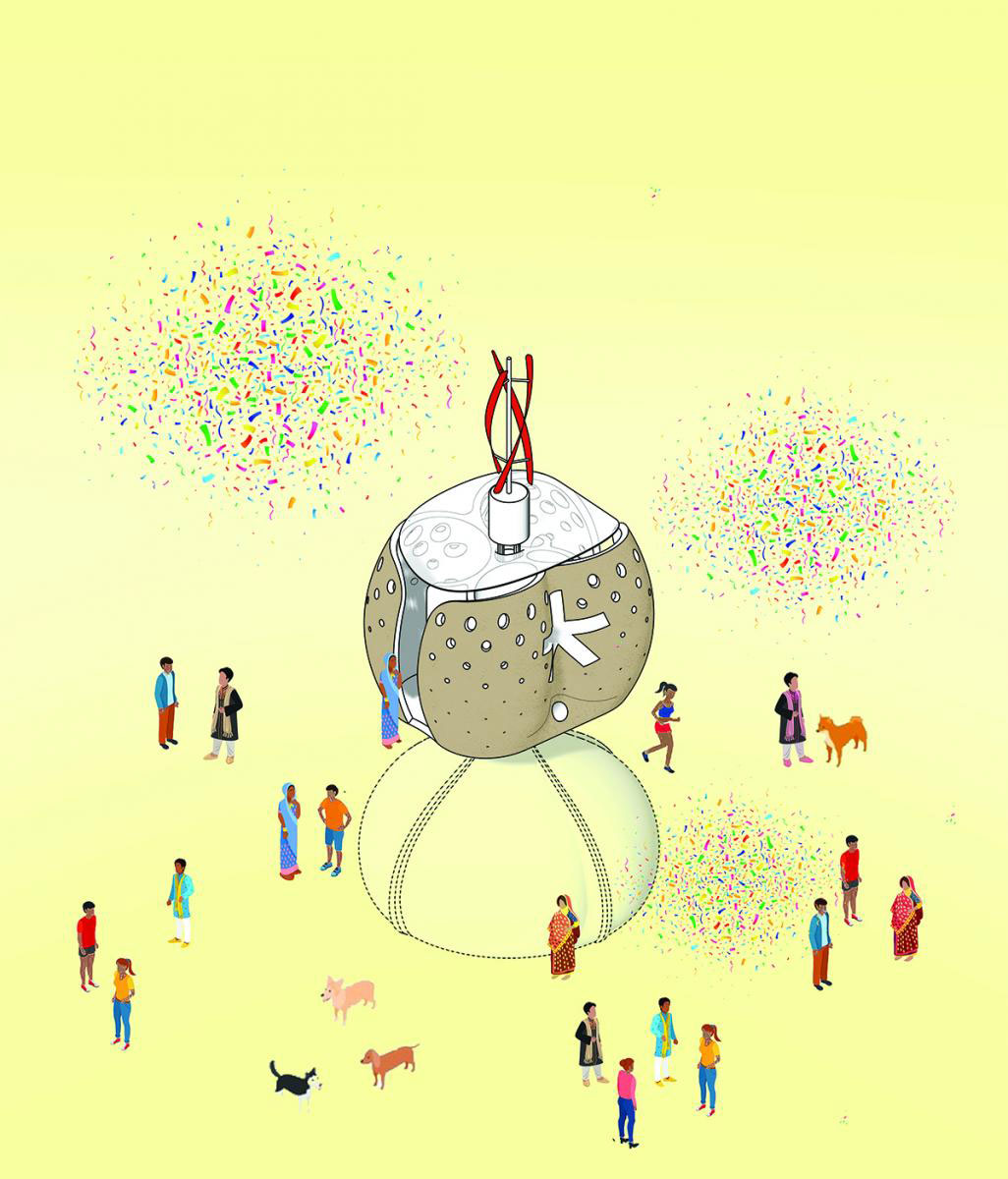
SPARK’s proposal provides cost-effective toilet modules printed from a mixture of processed bamboo fiber and gum resin. The toilet modules sit on and a secured to a buried 3d printed reinterpretation of a traditional biogas dome that uses human, animal, and vegetable waste to generate and store gas.
The biogas fuels a micro CHP unit (combined heat and power) to create electricity. The printed monocoque shell of the toilet comes complete with a toilet bowl and basin printed as part of the homogenous surface of the toilet cubicle. The shell’s exterior can be rendered or finished with various materials appropriate to the local context and environment.
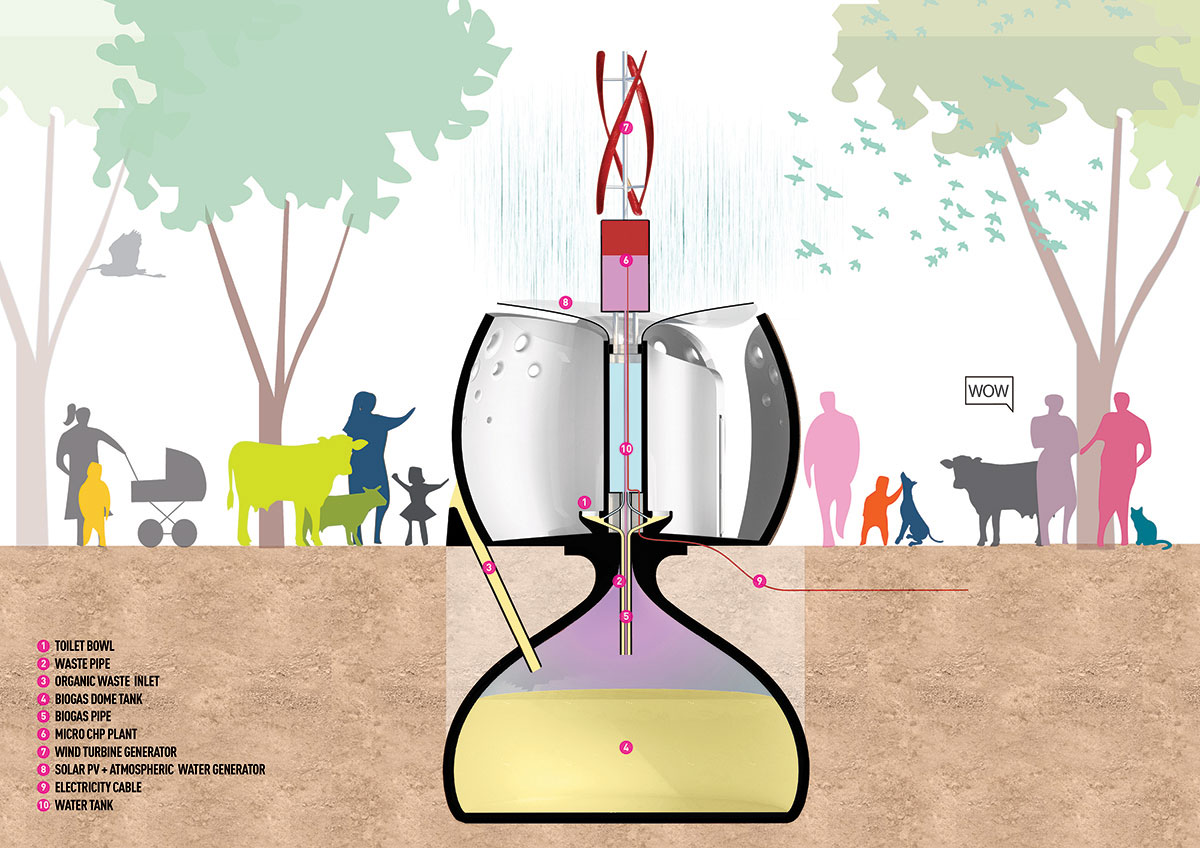
The toilet and its associated biogas dome can be flown by drone into remote locations as complete and easily docked together locally. The biogas dome has been sized to function for 10 years, generating enough electricity to power a small community of 8 dwellings.

Energy is central to nearly every major challenge and opportunity the world faces today. The UN set a Global Goal to ensure universal access to affordable, reliable, and sustainable energy by 2030. Currently, 13% of the global population still lacks access to electricity. Some 3 billion people lack access to clean cooking solutions and are exposed to dangerous levels of air pollution. The situation of the rural poor, despite the UN’s objectives and local government initiatives, poses a growing challenge where toilet facilities with proper sewage treatment and energy services are non-existent. SPARK’s “The Big Arse Toilet,” so-called given its form, can provide sanitation and power to communities lacking these essential utilities.
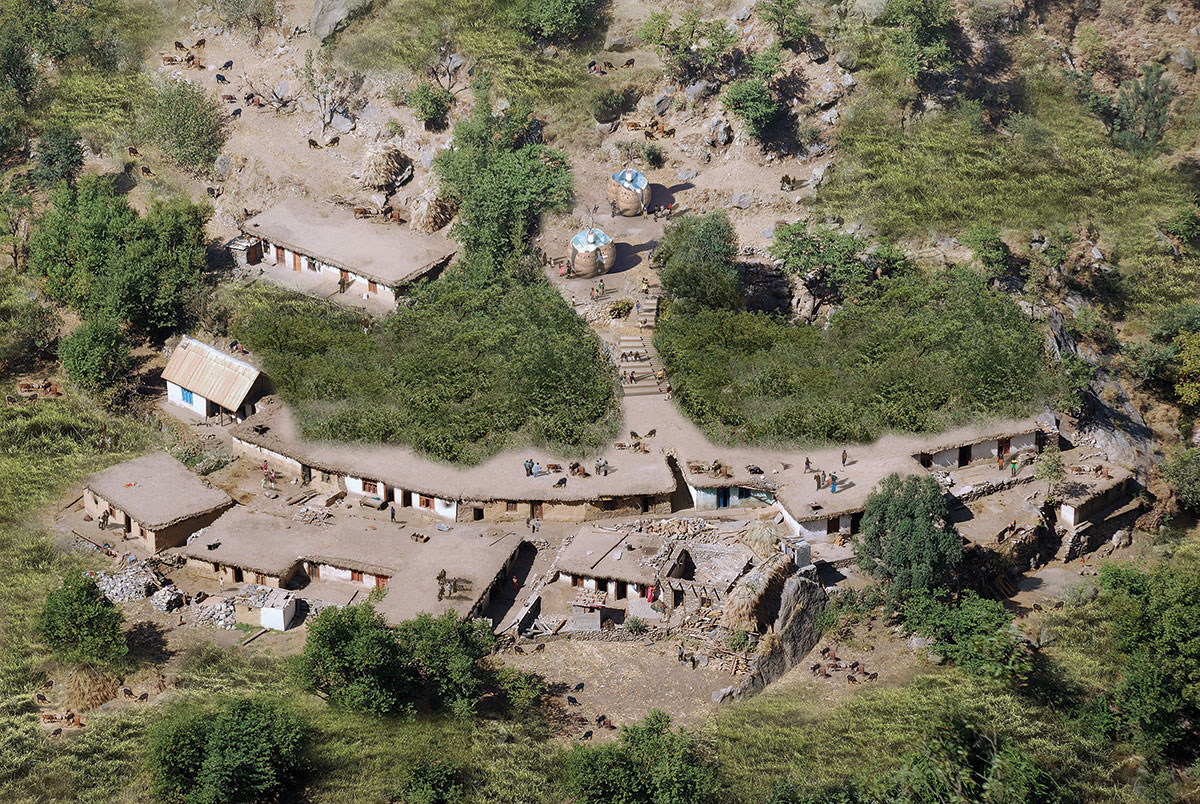
SPARK partner Stephen Pimbley said, “SPARK’s self-funded The Big Arse Toilet has been developed to highlight that not enough is being done to provide solutions for vulnerable individuals that are worst affected by lack of access to the level sanitation most take for granted. Our proposal could help prevent disease and assist in community development by lifting women’s social barriers, particularly in rural communities. Often meaning severe consequences for their health, perpetuating the disproportionate levels of disease associated with poverty and open defecation.”
